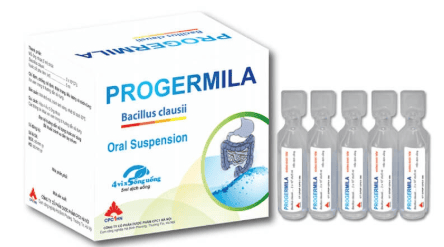This is an automatically translated article.
Posted by Master, Doctor Mai Vien Phuong - Department of Examination & Internal Medicine - Vinmec Central Park International General Hospital
1. Overview of food allergies and food intolerances
Food allergy is an immune-mediated reaction to food. The most common is an immunoglobulin E (IgE)-mediated reaction. IgE is an allergy antibody. They cause an immediate reaction when chemicals, like histamine, are released from mast cells.
Food allergies can be fatal, unlike food intolerances or sensitivities. In severe cases, eating or even touching a small amount of an allergen can cause a serious reaction.
Symptoms of a food allergy include:
Skin reactions: Rash, swelling and itching Anaphylaxis : difficulty breathing, wheezing, dizziness and death Digestive symptoms Eight foods make up 90% of allergic reactions: Milk, eggs, fish, shellfish, peanuts, tree nuts, wheat and soy.
There are also non-IGE-mediated food allergies. These reactions occur when other parts of the immune system are activated in addition to the IGE antibody.
Symptoms of a non-IGE reaction are often delayed and occur primarily in the gastrointestinal tract. These include vomiting, diarrhea, or bloating. Little is known about this particular type of reaction, and it is generally not life-threatening.

2. What is egg intolerance?
Egg intolerance is a non-life-threatening adverse reaction to egg consumption.
You may be intolerant to egg whites, egg yolks, or both. Such an intolerance often leads to gastrointestinal disturbances, such as bloating or diarrhea.
In some cases, the intolerance can last for years, while in others trouble with eggs for life. It can also occur at any age.
Talk to your doctor if you think you or your child is sensitive to eggs so they can rule out an allergy and help offer tips for coping.
3. How is it different from an egg allergy?
Egg intolerance means that your body reacts adversely to this particular food. It is also possible to have multiple food sensitivities at the same time, such as gluten, dairy, and soy.
Egg intolerance is different from an egg allergy, which is caused by an immune reaction to the protein in eggs.
With an egg allergy, your immune system responds by attacking substances that your body cannot tolerate. Immediately after eating eggs, you may notice symptoms such as itching and swelling, especially around the face and throat.
A severe egg allergy can cause a severe allergic reaction called anaphylaxis, which is a life-threatening phenomenon that can stop breathing and consciousness.
Egg intolerance does not cause allergic or anaphylactic symptoms. However, you can still tell if you are sensitive to eggs based on the symptoms you experience after eating them.
4. What are the symptoms of egg intolerance?
Symptoms of egg intolerance mainly affect your digestive system. So, if you are sensitive to eggs, you may experience one or more of the following:
Abdominal pain or bloating Cramps Diarrhea Nausea or vomiting You may also feel a headache or a feeling of lightheadedness. Symptoms of a food allergy are immediate, while an intolerance can occur hours or days later. Because babies and young children have a harder time detecting symptoms of food sensitivities, if they notice a change in their bowel movements or if they complain of colic after eating eggs.

5. How is egg intolerance diagnosed?
Allergies are thought to be easier to diagnose because there are many forms of testing, such as blood tests and skin prick tests.
Some alternative or integrative doctors may offer food sensitivity tests that look for antibodies in the blood, but these are controversial and often not covered by insurance .
You can also find DNA kits online to help detect food sensitivities, but such tests may not be as accurate.
A perhaps more affordable - and more accurate - way is to keep track of your symptoms after eating eggs in a food diary. Details are important here, as food intolerance symptoms are not always immediate.
You will also need to record how long your symptoms last. Your doctor may review this after a few weeks to help determine if you have a food intolerance.
6. What is the treatment for egg intolerance?
The most effective treatment for egg intolerance is to avoid eggs as much as possible.
Your doctor may recommend an elimination diet in which you mainly avoid eating eggs for up to six weeks. You can then see how you feel and whether you want to gradually add eggs to your diet.
In addition to whole eggs (or egg whites), you'll also want to avoid dishes that are cooked with eggs. When eating out, ask if any dishes contain eggs so you can prevent possible reactions after the meal.
Children can also develop an egg intolerance. Most children also have an egg allergy, an estimated 70% will outgrow them by the age of 16.

7. What are the risks of egg intolerance?
Egg intolerance does not mean you will be allergic to eggs.
In addition to the symptoms after eating eggs, there is also the risk of a lack of important nutrients that eggs provide. Includes:
Choline Lutein Omega-3 fatty acids (often found in over-the-counter products) Protein Selenium Vitamin D If you can't eat eggs several times a week, talk to your doctor to see if you're on lack of these important nutrients. You may need to combine other foods or supplements to prevent nutritional deficiencies.
On the other hand, egg allergy is much more dangerous. This is why it is important for you to make sure that you are egg intolerant and not allergic, in case you accidentally ingest eggs and egg products.
You can tell the difference between the two by the symptoms. While allergies can cause diarrhea and other upset stomach symptoms, an allergic reaction to eggs can also cause breathing difficulties and a drop in blood pressure.
Egg intolerance can be uncomfortable, but the most effective way to ease symptoms is to go on a diet. Your reactions to foods can also change over time, especially as an adult.
On the other hand, egg allergy is extremely dangerous, especially in children. Call the doctor if you think your child has a food allergy. Any symptoms of anaphylaxis require urgent medical attention.
Department of Endoscopy - Gastroenterology is one of the key specialties at Vinmec International General Hospital. For timely examination, advice and treatment of digestive diseases, you can contact Vinmec Health System nationwide or book an appointment on the website for service.
Please dial HOTLINE for more information or register for an appointment HERE. Download MyVinmec app to make appointments faster and to manage your bookings easily.
References
Allergy and intolerance. (2018). foodauthority.nsw.gov.au/foodsafetyandyou/life-events-and-food/allergy-and-intolerance Bianchi DM, et al. (2016). Egg and milk proteins as hidden allergens in food: 5-year (2010 to 2014) results of food allergen monitoring in Piedmont, Italy. DOI: 10.4315/0362-028X.JFP-16-013 Egg allergy. (2019). acaai.org/allergies/types-allergys/food-allergy/types-food-allergy/egg-allergy Food allergy diagnosis. (2019). acaai.org/allergies/types/food-allergies/diagnosis Kleine-Tebbe J, et al. (2016). Food allergies and intolerances: Distinction, definition, and delimitation. ncbi.nlm.nih.gov/pubmed/27215624 Lavine E. (2012). Blood testing for sensitivity, allergy, or intolerance to food. DOI: 10.1503/cmaj.110026 Turnbull JL, et al. (2015). Review article: The diagnosis and management of food allergy and food intolerances. DOI: 10.1111/apt.12984














